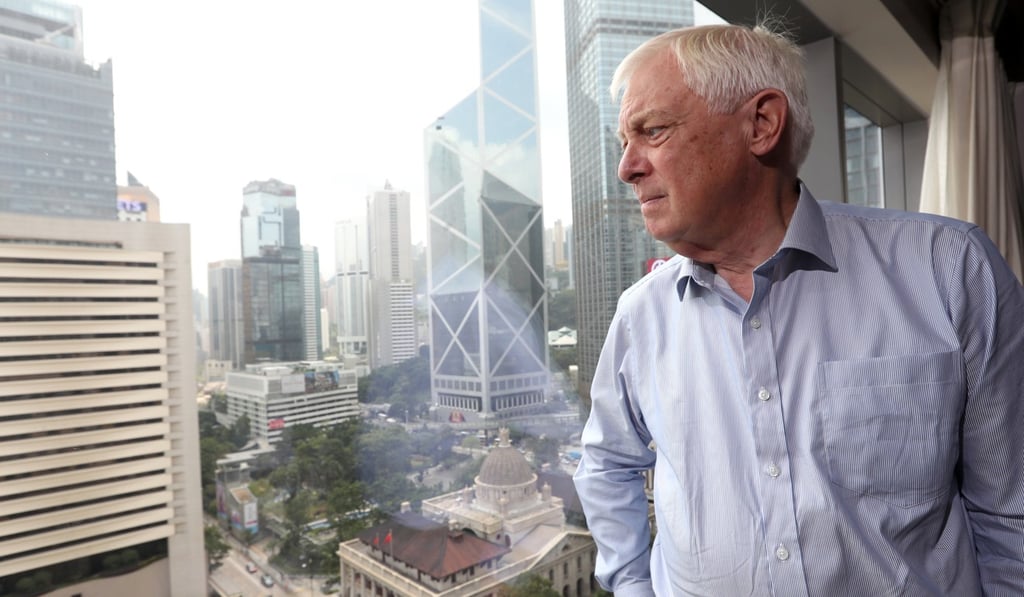Former Hong Kong officials Chris Patten and Anson Chan contradict Chief Executive Carrie Lam’s claim that mainland China was not deliberately excluded as a destination for fugitive transfers
- The city’s leader has said the mainland was never deliberately excluded from Hong Kong’s extradition laws before the city returned to Chinese rule
- The city’s last colonial governor and his deputy say that is false

Two key players during the end of colonial rule in Hong Kong have said the British government deliberately excluded mainland China from local extradition laws, contradicting a statement by the city’s current leader as she tries to legalise fugitive transfers to the mainland two decades later.
However, a Security Bureau spokesman maintained that Britain did indicate during the run-up to the return of Hong Kong to the mainland in 1997 that new fugitive laws between the city and the mainland would be needed.
On Saturday, though, Chris Patten, the last governor of Hong Kong, told the Post that Chief Executive Carrie Lam Cheng Yuet-ngor’s stance was “self-evidently untrue and absurd”.
Lam’s administration is facing strong opposition to planned legal amendments which would allow handovers to places the city lacks an extradition deal with, including the mainland, Macau and Taiwan. Tens of thousands have taken to the streets decrying the law – which they say could lead to politically motivated prosecutions of Hongkongers on the mainland – and scuffles have broken out as the legislature discussed it over the past week.
On Thursday, defending the changes at the Legislative Council, Lam said the mainland was never intentionally excluded from Hong Kong’s extradition laws ahead of the return to Chinese rule in July 1997.

But Patten said that “of course the Hong Kong and UK governments intended to exclude China” when they drafted the extradition law, which the Legislative Council passed in March of that year.